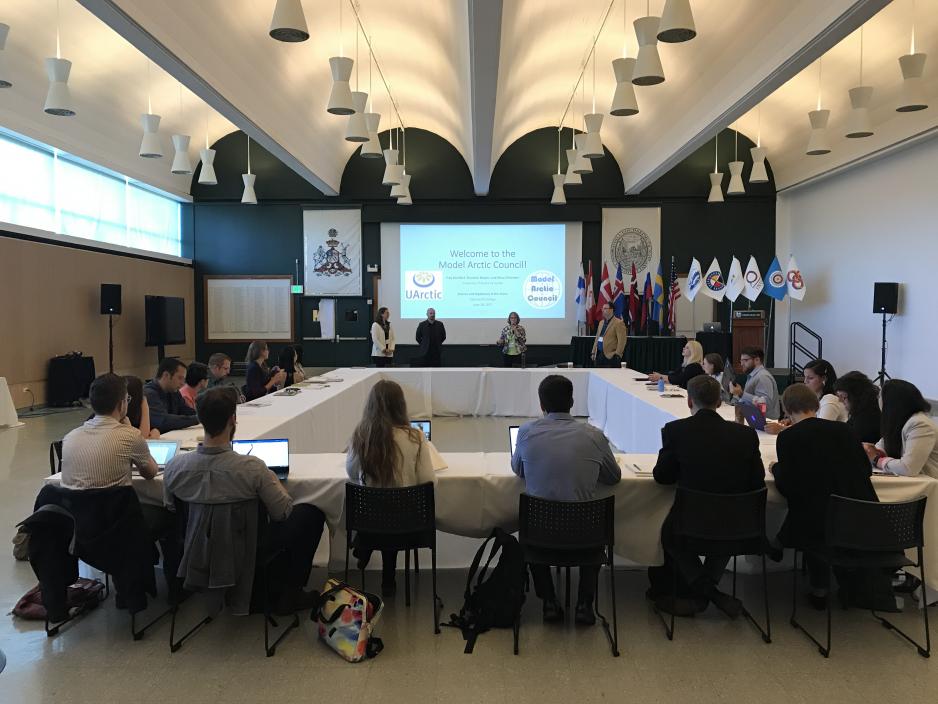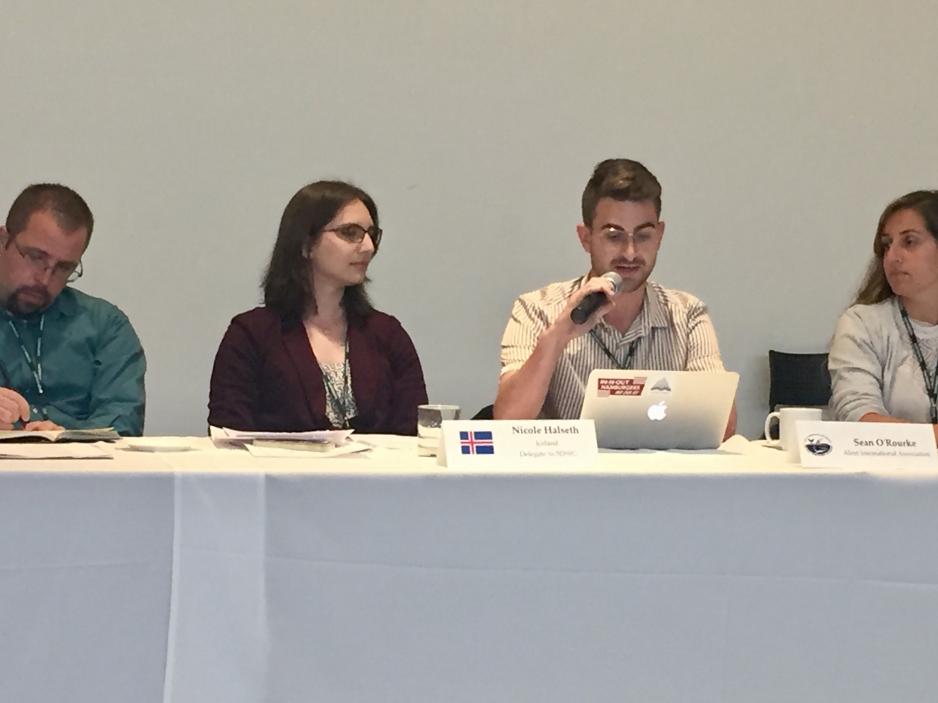Program on Arctic Science Diplomacy Develops Youth Leadership

The US-Canada Arctic Science Diplomacy and Leadership Workshop & Model Arctic Council trained young leaders in how to negotiate Arctic issues. (Photo: Lee McDavid)
A program at Dartmouth College on science diplomacy and communication brought together the next generation of leaders to learn about current issues facing the Arctic—and how to negotiate them in the real world.
A program at Dartmouth College on science diplomacy and communication brought together the next generation of leaders to learn about current issues facing the Arctic—and how to negotiate them in the real world.
The US-Canada Arctic Science Diplomacy and Leadership Workshop & Model Arctic Council was an interactive and innovative one-week program, culminating in a simulation of the Arctic Council. Students will put into practice what they have learned by negotiating as the Arctic Council’s member states and permanent participants. The program also brought in a number of experts on various Arctic policy areas who spoke on topics such as scientific cooperation and Indigenous governance.
Collaboration and science diplomacy
The workshop was collaboratively organized by professors and policy leaders from Dartmouth College and the University of Alaska Fairbanks who hope the program will help young scientists and researchers translate scientific knowledge into more effective policy. Associate Director of Dartmouth’s John Sloan Dickey Center and Professor of Environmental Studies Melody Brown Burkins, the program’s main organizer, said that science diplomacy is where science policy meets international relations to focus on "science-based issues that have a policy relevant piece to them."
Many things impacting the Arctic, such as infectious diseases, climate change, and technology, are scientific issues that also transcend international boundaries, and there is a need for communication among not only different political actors, but also different disciplines like medicine, engineering, and government. "The very term implies that we are trying to cross disciplines, where science has traditionally been siloed away from policymaking, and vice versa…those passionate about science diplomacy are trying to take evidence-based research and trying to adapt it to policymaking," said University of Alaska Fairbanks Associate Director of Arctic and Northern Studies Brandon Boylan, who also helped organize the workshop.
Inspiration for future Arctic leaders
Besides learning about the Arctic, such as the Arctic Council and its One Health initiative, the program is geared towards getting young leaders ready to tackle emerging challenges in the region. University of Alaska Fairbanks Director of Arctic and Northern Studies Mary Ehrlander said that they wanted to "emphasize the building of leadership capacities in the students and are really hoping the program will inspire students to have more confidence in their abilities to make a difference in the world."
"There’s a growing body of really talented youth leaders around Arctic, around Indigenous, and around climate [issues], and they show up," said Institute of Arctic Studies Director Ross Virginia, who gave a panel presentation at the workshop. "They have a lot to contribute."
Denae Benson, who studies history at the University of Alaska Fairbanks, found the experience valuable. Discussing the shared interests and values of the program’s other participants, she said that "everybody here cares about what’s happening to youth. Everybody here cares about what’s happening to Indigenous people because everybody here is very aware." As a young woman of Koyukon Athabascan, Inupiak, and Colombian descent, the issues discussed in the Arctic Council simulation, such as food insecurity and mental health issues in the Arctic, had particular relevance because people in her own community face them: "it’s tangible when it’s people that you know."
The Dartmouth Model Arctic Council is not the first of its kind, building off of another Model Arctic Council organized by Ehrlander and Boylan at the University of Alaska Fairbanks last year. This year’s program ran from June 26-30.

Workshop participants deliver statements as Arctic Council Delegates and Permanent Participants. (Photo: Val Muzik)
